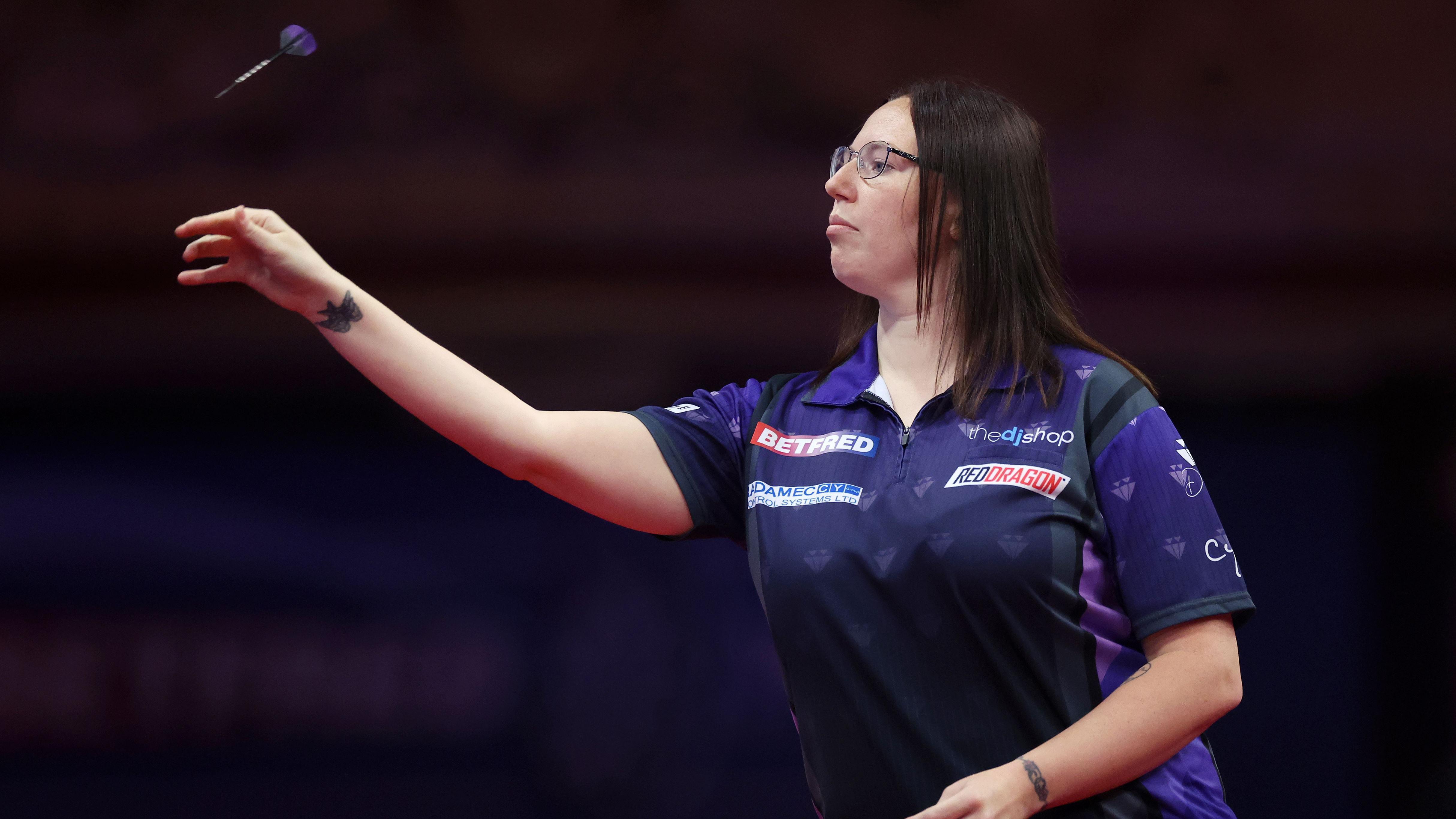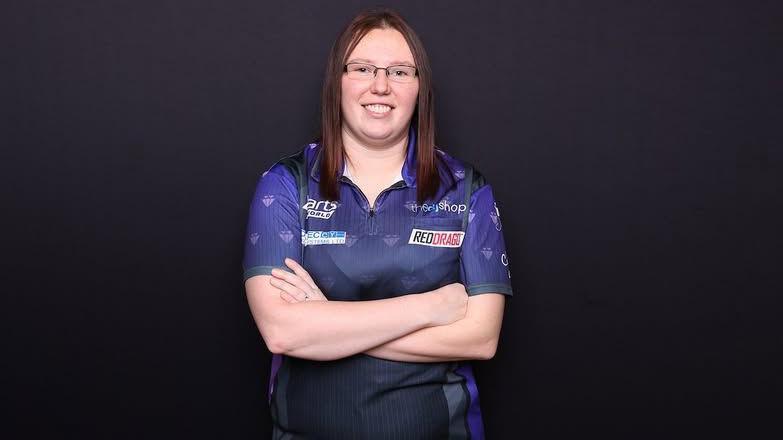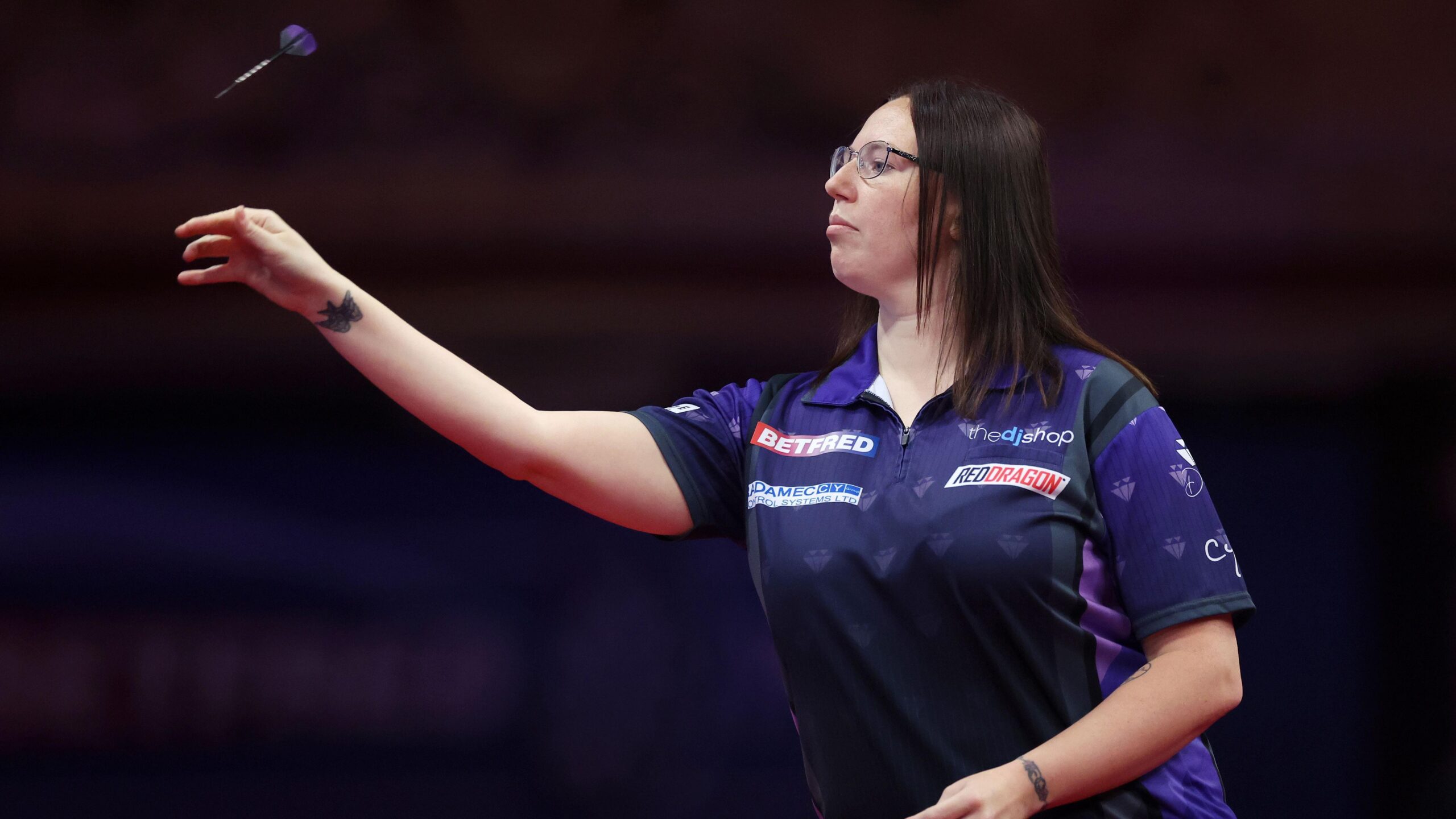Gemma Hayter’s Return to Darts Sparks Controversy as Women’s Game Struggles for Recognition Amidst Increasing Commercialism in Sports
In the world of professional sports, the journey often mirrors the ongoing debates about equity, opportunity, and recognition. The story of Gemma Hayter, a female darts player from Portsmouth, is a microcosm of these larger themes, shedding light on both individual perseverance and the systemic challenges faced by women’s sports. Hayter’s return to the oche, just 18 months after a lengthy eight-year hiatus, is rooted in her frustration with the lack of opportunities in the women’s game. Her decision to re-engage with darts comes in a time when the sport—and women’s sports in general—are grappling with issues of visibility, recognition, and investment.
Hayter’s personal journey is one of dualities: she initially stepped away from darts in 2016, feeling disillusioned and convinced that she was “wasting a lot of money and not getting a lot back.” This sentiment resonates within the broader context of women in sports, where many female athletes have historically faced barriers not only in terms of competition but also in access to sponsorship, media coverage, and professional opportunities. This disparity can dishearten even the most passionate players, leading to decisions to step back or quit entirely.
However, inspiration returned for Hayter through her friendship with Luke Humphries, a fellow competitor from Berkshire who became the world number one in 2024. His success not only reignited her interest in darts but also highlighted the potential within the sport for those who dare to dream. Humphries’ ascent is reflective of a broader narrative where male athletes often receive more visibility and financial backing compared to their female counterparts, a reality that Hayter hopes will change.
The upcoming PDC World Darts Championships, scheduled from December 15 to January 3 at the iconic Alexandra Palace in London, will feature an expanded field of 128 players, which is a notable increase from the 96 players that participated the previous year. This change signals an effort to broaden the reach of the competition, yet Hayter and other female players continue to underscore the need for greater recognition dedicated to women’s contributions within the sport.
Hayter qualified for the championships by finishing fifth on the 2025 Women’s Series order of merit after having already secured two PDC Women’s Series titles and a debut at the Women’s World Matchplay. Such achievements should not only be celebrated but also viewed as indicators of the untapped potential in women’s darts. With only five women competing in this year’s championship, it raises questions about the broader structure and support systems in place for female athletes in darts. Hayter’s perspective that the women’s game “deserves a bit more recognition” resonates with a growing chorus advocating for more equitable treatment and visibility for women in sports.
While Hayter embraces the excitement of competing at such a prestigious event, she acknowledges that the sport is evolving. Describing darts as “turning upside down and becoming a young person’s game,” there is a sense that the dynamics within the sport are shifting. Traditionally, darts has had a robust involvement from players of various age groups, but as the sport gains traction among younger demographics, it raises the question of how these changes will affect the existing landscape.
The increased prize pot of £5 million and the eye-catching £1 million for the winner is another facet of this evolution, re-establishing darts as a lucrative pursuit. However, Hayter’s story illustrates the complexities entailed in pursuing a career in darts, particularly for women. The financial realities often differ vastly from those of their male counterparts, who frequently enjoy more substantial sponsorship deals and better media coverage. This requires a re-evaluation of how sports organizations prioritize investment in women’s sports and the infrastructure supporting female athletes.
The importance of representation is underscored by the participation of other notable female players at the PDC World Darts Championships, such as three-time WDF World Champion Beau Greaves, Women’s Matchplay winner Lisa Ashton, and Fallon Sherrock, who made history as the only woman to have won matches in the world championship, doing so in 2019. Their successes serve as a beacon of hope, signaling that the women’s game can carve out a prominent place within the broader context of professional darts.
The dialogues surrounding women’s sports extend beyond individual athletes. They tap into larger societal issues concerning gender equity, representation, and the recognition of women’s contributions across all platforms. Hayter’s return to competitive darts brings forth a narrative ripe for exploration and discussion about how much longer female athletes must struggle for a modicum of respect and acknowledgment.
As Hayter prepares for her debut at the world championships, her story invites deeper reflection. It isn’t just about one player’s journey but rather an opportunity to engage in a broader conversation about women in sports, the support systems (or lack thereof) available, and the tangible steps that can be taken to ensure that female athletes receive the recognition they so rightfully deserve. The sport of darts, like many others, stands at a crossroads where decisions made now will shape its future trajectory, both for men and women alike. With figures like Hayter leading the charge, the hope is that the narrative of women in darts will continue to evolve, paving the way for greater inclusivity and opportunity in the years to come.

Just 18 months after taking an eight year break from the game, a women’s darts player, has qualified for the sport’s biggest stage.
Gemma Hayter from Portsmouth said it has been a "rollercoaster" after she qualified for the PDC World Darts Championships.
She stepped away from the oche after feeling the women’s game lacked opportunity but says the success of her friend and world number one, Luke Humphries from Berkshire, "inspired" her to pick the darts up again.
The event will run from the 15 December – 3 January at London’s Alexandra Palace.

Reflecting on her decision to quit the sport in 2016 Hayter said she felt like she was "wasting a lot of money and not getting a lot back".
She played with Humphries at youth level, and when the Reading born world number one won the world championships in 2024, Hayter decided to make a return.
Since then she has won two PDC Women’s Series titles, which led to a debut at the Women’s World Matchplay.
She has now gone one better by booking her place at Ally Pally after finishing 5th on the 2025 Women’s Series order of Merit.
"I’ve got to have fun, I don’t know when I’m going to be there again," said Hayter.
"I’ve just got to try and soak it up and hopefully I play well."
More stories from Hampshire
- Nurse jailed for neglect of teen cancer patients
- Two-year wait for specialist NHS dental services
- Two arrests after police search sparked evacuation
Five women will compete at the championships after a new qualifying structure was announced.
There will be an expanded field of 128 players this year, which is up from 96 last year and the winner will take home £1m of a £5m prize pot.
Three-time WDF World Champion Beau Greaves, Women’s Matchplay winner Lisa Ashton and Fallon Sherrock – the only woman to have won matches in the world championship, in 2019 have also qualified.
Hayter, a qualified lab technician said she feels like darts is "turning upside down and becoming a young persons game" however she admitted that she does think the women’s game still "deserves a bit more recognition".
You can follow BBC Hampshire & Isle of Wight on Facebook, X (Twitter), or Instagram.
More on this story

